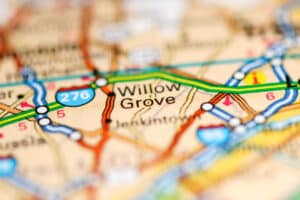Compared to other American adults, the nation’s LGBTQ population is substantially more susceptible to developing substance use disorders. Several factors may explain the increased risk for addiction in the LGBTQ community. The good news is that people who identify as LGBTQ and struggle with substance misuse can recover in any modern rehab facility. However, research shows that the chance of a successful recovery is higher in specialized LGBTQ addiction treatment programs. Finding such a program may be vital to rehabilitation.
Addiction in the LGBTQ Community – Defining Terms
Historically, researchers have overlooked substance use among lesbian, gay, bisexual, transgender, and questioning Americans. Fortunately, in recent years, this has begun to change. Today, trends in the LGBTQ community appear in the National Survey on Drug Use and Health (NSDUH), the nation’s largest annual survey on substance use.
To clarify any confusion, “substance use disorder” encompasses both “addiction” and “substance abuse.” These terms may refer to:
- Excessive use of a legal or illegal substance, such as alcohol, cocaine, heroin, or meth
- Non-addicted misuse of a legal or illegal substance
Recent figures show that over one-third of all LGBTQ Americans have a substance use disorder.
How Common Is Substance Abuse in the LGBTQ Community?
Federal researchers do not directly track addiction and substance abuse in the LGBTQ community. The same is true for all other population groups in the U.S.
Why is this the case? First, by definition, “substance use disorder” gives equal weight to addiction and substance abuse. Symptoms of either condition count toward the same diagnosis. The current figures reflect the total of LGBTQ individuals who struggle with one or both of these conditions.
Close to two-thirds of affected LGBTQ Americans have an alcohol-related substance use disorder. A slightly lower number experience predominantly drug-related issues. In addition, nearly a third of affected LGBTQ adults struggle with both alcohol- and drug-related substance use disorders.
Causes of Addiction in the LGBTQ Community
The core causes of addiction in the LGBTQ community are the same as those for other population groups. The primary reason is excessive drug or alcohol use. Over time, heavy substance use may alter brain function, possibly leading to physical and psychological dependence. It can also result in involuntary substance-seeking behavior. These factors form the basic addiction triad.
LGBTQ Americans also face unique risk factors that frequently increase susceptibility to developing a substance use disorder. Additional causes of addiction in the LGBTQ community include:
- Discrimination
- Social stigma and rejection
- Harassment and shaming
- Violence
- Lack of family support
Self-suppression and fear of coming out can also elevate the risk of substance abuse in the LGBTQ community.
The Importance of LGBTQ Addiction Recovery
Research shows that specialized treatment programs are crucial for effective LGBTQ addiction recovery. Programs of this type provide modern addiction care and specifically address underlying issues that impact the LGBTQ community. In this way, they offer a full-spectrum approach to successful treatment for affected people in this population group. Though these programs have been somewhat rare, they are becoming more common in communities throughout the U.S.
Learn More About Treating Addiction in the LGBTQ Community at Promont Wellness
If you want more information on LGBTQ addiction recovery, contact the caring professionals at Promont Wellness. We can fully assess your potential addiction risks and help you determine if you’re currently affected by a substance use disorder.
Promont Wellness offers specialized, LGBTQ-friendly addiction treatment in a safe and inviting recovery environment. You’ll find customized help for specific substance use disorders within this comfortable and inclusive setting. You’ll also receive direct assistance with underlying issues contributing to your addiction. Call us today at 866.939.4243 to learn more. You can also reach us through our online form.



